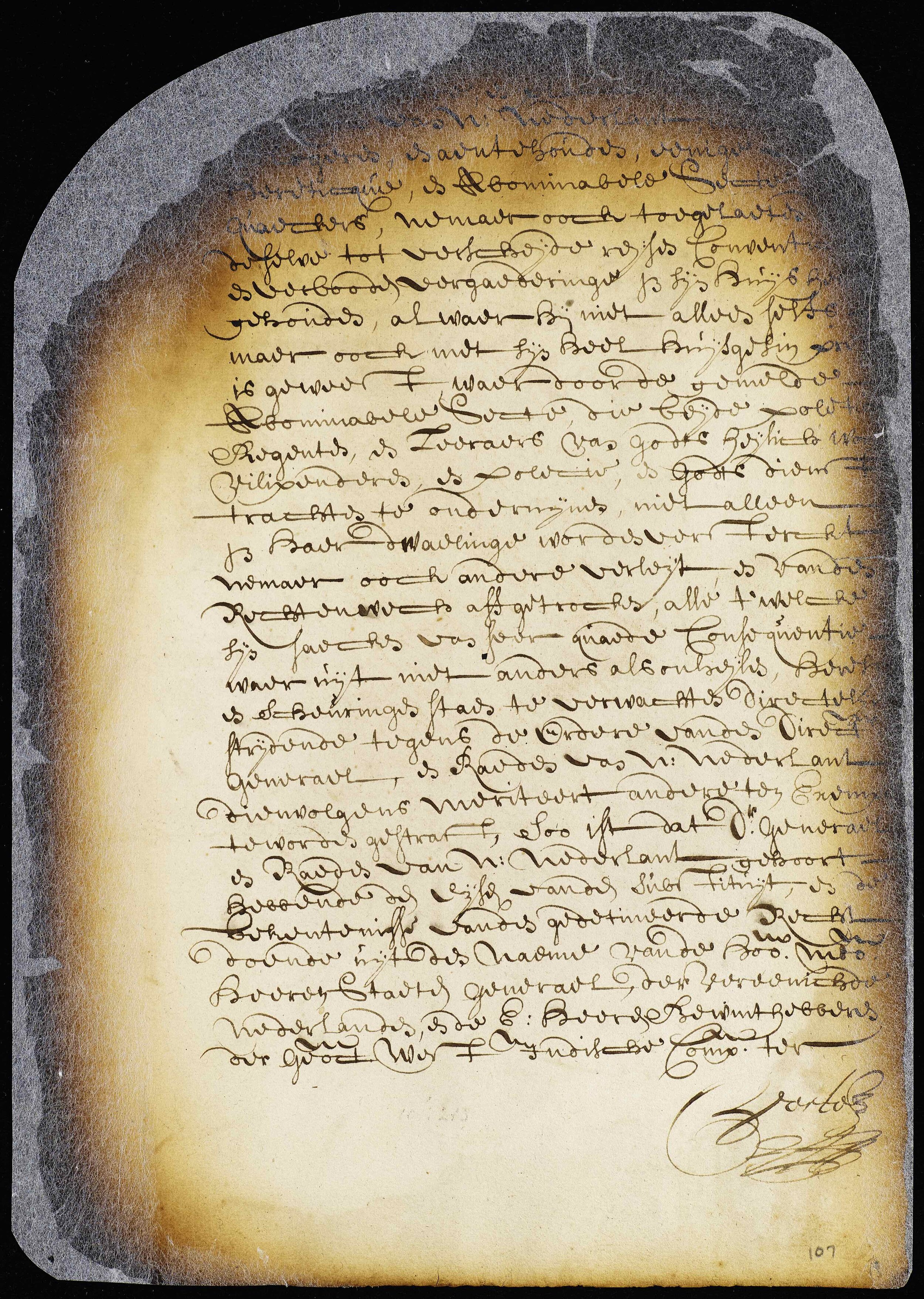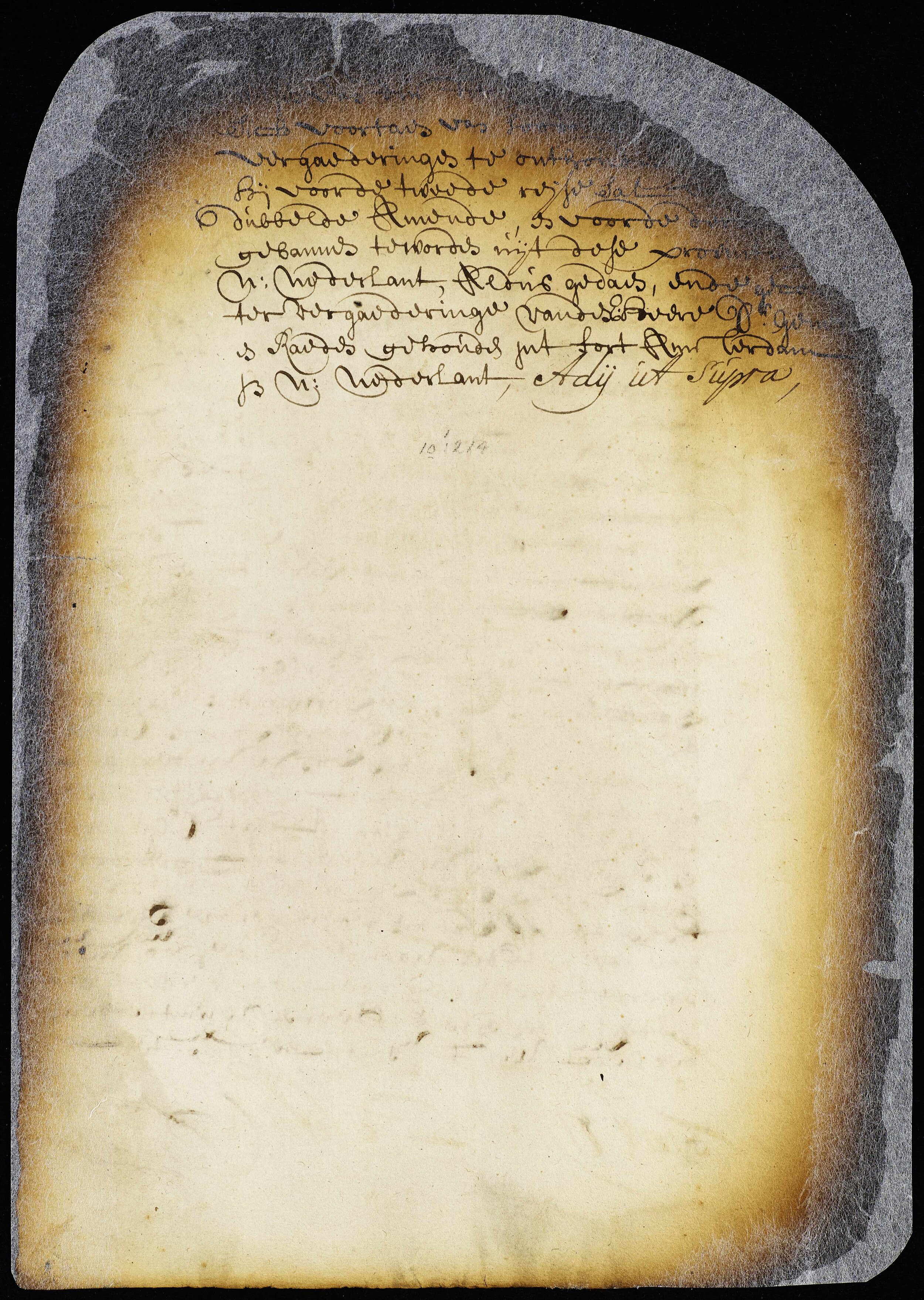JOURNAL OF JOHN BOWNE: FOLIO 51
—Continued from September 14, 1662: John Bowne On Trial
“So the next morning he came and gave me a writing in Dutch, and told me the Governor had sent me a copy of the Court’s sentence. He was not ashamed of what he did, and if I would I might have it in English. It was that for such and such things I was fined and must pay a hundred and fifty guilders and charges, and other particulars of what must follow if I did so again. I told him I could pay nothing upon that account.
So I was kept there till the 25 day of the month…”
Reproduction from Bowne House Archives. Original from NY Historical Society
Notes on the Text
he came: Schout Resolved Waldron (Deputy Sheriff and head of the military police)
a writing in Dutch: a copy of his sentence (see below)
I might have it in English: The register of Solomon La Chair, notary public of New Netherland, show that on September 20 Bowne was charged another 3 guilders for an English-language copy of his sentence.
150 guilders: 25 pounds Flanders, roughly equivalent to $9,000 in today’s money
upon that account: on those terms
Bowne’s sentence, passed by the Director and Council of New Netherland, has been preserved in the New York State Archives as part of the Dutch Colonial Records. Like many of the Colonial records, it was damaged in the 1911 Capitol Library fire. (The original document, seen below, can also be viewed and downloaded in high-res from the Digital Collections on the NYSA website.)
SENTENCE. JOHN BOWNE, OF FLUSHING, L. I., FOR LODGING QUAKERS, AND ASSISTING AT THEIR MEETINGS -Dutch Colonial Council Minutes, 1638-1665. September 14, 1662
A full translation of the two-page sentence is not readily available, but the following partial translation gives the gist:
“Whereas John Bowne, now a prisoner, residing in Flushing, on Long Island, has dared, in contempt of our orders and placards... to provide with lodgings some of the heretical and abominable sect named Quakers and even permitted that they keep their forbidden meetings a his house... [we] condemn the aforesaid John Bowne to an amend of twenty-five pounds Flanders and to pay all costs... for the second time, he shall pay double amende, and for the third time to be banished out of the province.”
This penalty appears to be in line with those proposed in the 1656 Ordinance Against Conventicles. Unlike the targeted Quaker bans that followed their 1657 arrival in New Netherland, this earlier law imposes a more general ban on all unauthorized religious gatherings outside the Dutch Reformed Church, which was the official public church of the Netherlands and its colonies. (Read a translation of the text. ) Despite the authorities’ extreme antipathy to the Quakers, and Bowne’s personal confrontation with Stuyvesant over his refusal to doff his hat, he does not seem to have been singled out for unusually harsh treatment.
Bowne and the government had arrived at a stalemate. Even if he had been willing to pay the fine, he would have been forced to discontinue his Quaker worship, or risk the larger fine and ultimately exile. He was left to languish in the Barracks of Fort Amsterdam and contemplate his future. Meanwhile, the dragnet was about to tighten around other Quakers on Long Island- a part of the story that is not often mentioned in accounts of Bowne’s trial.
Coming next: More Long Island Quakers are caught up in the purge.



